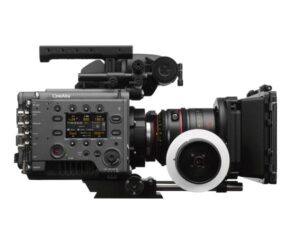Diploma in Cinematography
A Diploma in Cinematography is a degree in filmmaking that covers many aspects of the art. Filmmakers need to have an eye for detail, and this means that they must be able to capture motion pictures withmm m excellent lighting and sound. They also need to be able to supervise complicated lighting schemes and use the visual tools of cinema. This program is an excellent option if you're interested in pursuing a career in filmmaking.
Admission Procedure : Govt.Norms
Approved intake : 30
Course duration : 3 years
Study Mode : Full time
Course Level : Diploma
Course Approval : AICTE
A Diploma in Cinematography teaches you how to work with film technology, as well as the fundamentals of photography. Students will learn about cinema projection, film dimensions, visual effects, and the operation of a television camera. Students will also learn about the aesthetics of scene composition and develop a unique aesthetic point of view.
Cinematography:
Cinematography is the art and technique of motion-picture photography. It encompasses the entire process of capturing images on film or digital media, from choosing the right equipment and settings to lighting the scene and composing the shot.
Cinematographers work closely with the director and other members of the filmmaking team to create a visual style that supports the story and mood of the film. They use a variety of techniques, such as camera angles, movement, and lighting, to create images that are both aesthetically pleasing and emotionally resonant.
Here is a more detailed explanation of some of the key elements of cinematography:
- Camera angles: The angle from which a scene is shot can have a big impact on the viewer’s perception of the scene. For example, a high-angle shot can make a character seem small and vulnerable, while a low-angle shot can make a character seem powerful and imposing.
- Camera movement: Camera movement can be used to create a sense of dynamism and excitement in a scene. For example, a tracking shot can follow a character as they move through a space, while a panning shot can reveal a wide landscape.
- Lighting: Lighting is used to create mood and atmosphere in a scene. For example, soft lighting can create a sense of warmth and intimacy, while harsh lighting can create a sense of suspense or danger.
Course Details
Scope of cinematography is enormous, as this profession is not only confined to fictional movies. This art is now used in many areas of science and technology. Non-fictional series and documentaries have become immensely popular of late. To break into this field, you need to be creative and network with the right people. You can also begin by working as an assistant cinematographer, learning how to use a camera.
Once you’ve completed your training, you’ll have many options. Many film studios hire cinematographers to run their cameras as they direct the Director of Photography. Other options for working as a cinematographer include television and news production, camera production assistants, and even film editors. The salary range for a trainee can be anywhere from INR 4 lakhs to INR 7 lakhs, depending on experience.
Career
- Cinematographer: Cinematographers are responsible for the visual style of a film or video. They work with the director to create a visual look that supports the story and mood of the project. Cinematographers use a variety of techniques, such as camera angles, movement, and lighting, to create images that are both aesthetically pleasing and emotionally resonant.
- Cameraman: Cameramen are responsible for operating the camera during filming. They work with the cinematographer to achieve the desired camera shots. Cameramen must have a good understanding of camera equipment and techniques.
- Videographer: Videographers are responsible for recording and editing video footage. They work on a variety of projects, including films, television shows, documentaries, and corporate videos. Videographers must have a good understanding of camera equipment and editing software.
- Video Editor: Video editors are responsible for assembling and editing video footage to create a finished product. They work with the cinematographer and director to achieve the desired visual style and pacing of the project. Video editors must have a good understanding of editing software and storytelling techniques.
- Lighting Technician: Lighting technicians are responsible for setting up and operating the lighting equipment on a film or video set. They work with the cinematographer to achieve the desired lighting effects. Lighting technicians must have a good understanding of lighting equipment and techniques.
- Gaffer: Gaffers are the head lighting technicians on a film or video set. They are responsible for overseeing the lighting department and ensuring that the cinematographer’s vision is achieved. Gaffers must have a deep understanding of lighting equipment and techniques.
Benefits
- Earn in crores : salary for a movie cinematographer for a project is 40lakhs to 70 lakhs in India
- Be an Entrepreneur: Cinematographer can begin their own studio with the objective to cover events and programs throughout the year.
- Creative Expression: Cinematography allows for creative expression through visual storytelling, framing, and composition, making it an art form in itself.
- In-Demand Skills: Cinematographers are highly sought after in the entertainment industry, ensuring a steady demand for their skills.
- Portfolio Building: A diploma program often provides ample opportunities to build a strong portfolio of work, showcasing your talent and capabilities to potential employers or clients.
- Collaboration: Cinematographers collaborate closely with directors, producers, and other creative professionals, fostering teamwork and communication skills.
- Technical Proficiency: Graduates gain technical proficiency in operating cameras, lighting, and post-production equipment, making them valuable assets on film sets.
- Onsite Travel Opportunities: Film and video production can take cinematographers to different locations, offering opportunities for travel and exploration.
- Recognition and Awards: Exceptional cinematography can lead to recognition and awards, adding prestige to one’s career.




